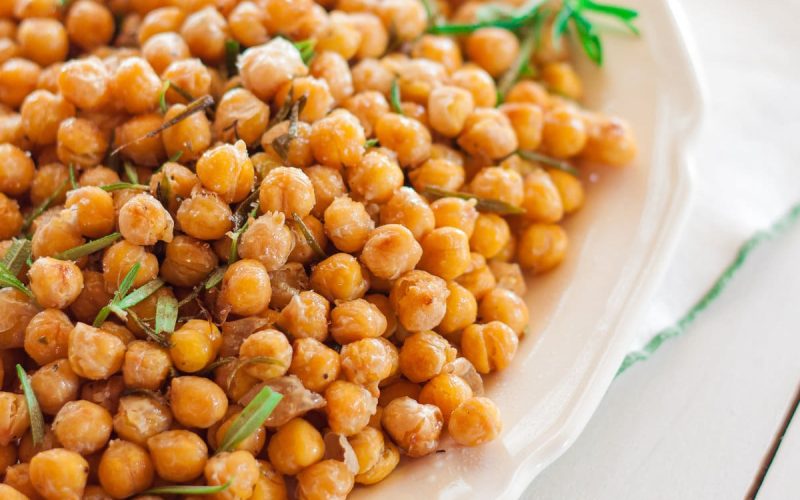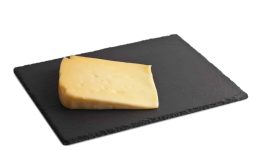Chickpeas are a very common legume that is also popularly called garbanzo beans and is common in different parts of the world.
While these delicious seeds have gained more fame in recent years, chickpeas have been grown for food in the middle east for over two millennia.
The grainy texture and nutty taste of chickpeas make it pair greatly with other ingredients and foods.
As a very good source of fibre, vitamins, and minerals, chickpeas may provide consumers with a wide range of health benefits like aiding weight management, improving digestion, and even reducing the risk of some diseases.
In addition to all of the above, chickpeas are rich in protein which makes them a very good option for vegetarians who cannot eat meat and benefit from meat protein.
Below are 8 interesting evidence-based health benefits of eating chickpeas, and also a few ways you can incorporate these delicious and nutritious seeds into your diet.
1. Chickpeas are packed with nutrients
Chickpeas have an amazing nutrition profile and that makes them stand out.
Chickpeas have a very moderate amount of calories, as they provide a total of 46 calories in a 1-ounce (28-gram) serving. Also, approximately 67% of that 46 calories are from carbs, while the remaining is generated from protein and a tiny amount of fat.
Chickpeas also offer a wide variety of vitamins and minerals, as also a very decent amount of protein and fibre.
A 1-ounce (28-gram) serving of chickpeas offer the following nutrients:
- Phosphorus: 5% of the RDI
- Carbs: 8 grams
- Calories: 46
- Protein: 3 grams
- Folate: 12% of the RDI
- Fiber: 2 grams
- Iron: 4% of the RDI
- Manganese: 14% of the RDI
- Copper: 5% of the RDI
2. Chickpeas May Help Keep Your Appetite Under Control
If you have a huge appetite that you wish to keep under control. The fibre and protein in chickpeas may help keep your appetite in check.
Fibre and protein work in synergy to slow down digestion, and that helps to promote fullness. Additionally, protein may top up the levels of appetite-reducing hormones in the body.
As a matter of fact, the filling effects of the fibre and protein present in chickpeas may help to automatically reduce your calorie intake in the day time and also at meals.
One research compared the appetite and calorie intake amongst a dozen women who ate two separate meals.
Before one of their meals, each participant ate a single cup (200 grams) of chickpeas, and before the next meal, they had to eat two slices of white bread.
Each of the women experienced a significant drop in calorie intake and appetite after the chickpea meal when compared to the meal of white bread.
Another research revealed that individuals who consumed an average of 104 grams of chickpeas on a daily basis for 3 months reported feeling fuller easily and ate less of junk foods, compared to the period when they did not eat chickpeas.
More study is required to confirm the role chickpeas may play in the control of appetite. Nevertheless, chickpeas are certainly worth including to your diet if you would like to experiment with their ability to prompt fullness.
3. Chickpeas are Rich in Plant-Based Protein
Chickpeas are a very good way to get plant-based protein, which makes them a great food choice for people who do not feed on animal products.
A single ounce (28-gram) serving of chickpea provides up-to 3 grams of protein, which can be compared to the protein that is contained in similar foods like lentils and black beans.
The protein contained in chickpeas may help with the promotion of fullness and keep your appetite in control. Protein is also popular for the role it plays in weight control, maintaining muscle strength, and bone health.
Some studies have also suggested that the quality of protein found in chickpeas is a lot better than the protein of other types of legumes. The reason for this is because chickpeas contain almost every known essential amino acids, apart from methionine.
For this specific reason, chickpeas are not a complete protein source. To make sure that you get all of the vital amino acids in the food you diet, it’s vital that you pair your chickpeas with any other protein source, such as fish, or whole grains, to make up for the protein deficit.
4. Chickpea May Help You Manage Your Weight
Chickpeas have many different properties that may aid weight loss or help you control your weight.
First of all, chickpeas possess a slightly low-calorie density. This means that they offer very few calories that are relative to the number of nutrients they hold.
Individuals who eat lots of low-calorie foods are more likely to shed some weight and also maintain it than people who eat a higher amount of calorie-rich foods.
Furthermore, the fibre and protein contained in chickpeas may help to promote weight management as a result of their appetite-lowering effects and their potential to help reduce calorie intake at meals.
In one research, people who ate chickpeas often had a 53% less likely chance to become obese and also had a lower body mass index and a lower waist circumference when compared to people who did not feed on chickpeas.
In addition, a different meta-analysis revealed that people who ate a minimum of one serving of legumes, like beans, or chickpeas, every day lost about 25% more weight than people who fed on legumes free diet.
Despite the fact that these findings are promising, there is a need for more human studies to help establish the effects that chickpeas may have on weight loss and management. Nevertheless, chickpeas are a very healthy food to add to your diet.
5. Support Blood Sugar Control
Chickpeas have many great properties that may help to manage your blood sugar levels.
Firstly, these seeds have a somewhat low glycemic index (GI), and that is a marker of how fast your blood sugar may rise after eating some kind of foods. Diets that include many low-GI foods have been discovered to help with blood sugar management.
Secondly, chickpeas are a healthy source of fibre and protein like I earlier mentioned, and both proteins and fibre are known for the role they play in the regulation of blood sugar.
This is possible because fiber helps to slow down carb absorption, and that promotes a steady increase in blood sugar levels, instead of a scary spike. Also, feeding on protein-rich foods may aid the maintenance of healthy blood sugar levels in people dealing with type 2 diabetes.
In one research, 19 individuals who ate a meal that had a total amount of 200 grams of chickpeas recorded a 21% drop in blood sugar levels, then what was recorded when they fed on a meal that contained white bread or whole-grain cereal.
Another 3 months study revealed that 45 people who ate 728 grams of chickpeas each week had a great reduction in their fasting insulin levels, which is an essential factor in the control of blood sugar levels.
What is more? A number of studies have been able to associate the consumption of chickpea with a reduced risk of many different diseases, including heart disease and diabetes. These outcomes are often attributed to the blood-sugar-lowering effects of chickpeas.
6. Chickpeas May be Beneficial for Digestion
Chickpeas are packed full of fibre, which holds a number of proven benefits for digestive health.
The fibre contained in chickpeas is mostly soluble, which means it blends with water easily and creates a gel-like substance in our digestive tract.
Soluble fibre may also help to increase the number of healthy bacteria present in your gut and even prevent the overgrowth of bacteria that are considered unhealthy. This can also lead to a lesser risk of certain digestive conditions, such as colon cancer and irritable bowel syndrome.
In one research, 42 participants who were fed with 104 grams of chickpeas every day for a total of 12 weeks recorded improvement in their bowel function, which included a softer stool consistency and more frequent bowel movements when compared to the times they did not eat chickpeas.
If you want to experience an improvement in your digestive health, try including some more chickpeas in your diet and see the magic that it works.
7. Chickpeas May Protect Against Certain Chronic Diseases
Chickpeas possess several traits that may help to reduce the risk of many chronic diseases.
1. Heart Disease
Chickpeas are wonderful for the heart because they are a great source of different vital minerals, such as potassium and magnesium, which have been studied a number of times for their potential to improve heart health.
This is because chickpeas may help with the prevention of high blood pressure, which is a known key risk factor for heart disease.
In addition, the soluble fibre present in chickpeas has been revealed to help reduce triglyceride and also reduce “bad” LDL cholesterol levels, which may increase the risk of heart disease when elevated.
In one 3 months study carried out on 45 people, all 45 individuals who ate 728 grams of chickpeas each week recorded significant reduction in their total cholesterol levels by a total average of about 16 mg/dL.
2. Cancer
Adding chickpeas to your diet as often as possible may help you to reduce your risk of suffering from certain types of cancer.
Firstly, eating chickpeas may help to promote the production of butyrate in the body. Butyrate is a fatty acid that has been researched many times for its potential ability to reduce inflammation in colon cells, which means it can possibly lower the risk of colon cancer.
Furthermore, it is interesting to point out that chickpeas are a great source of saponins, which are very potent plant compounds that may aid the prevention of the development of particular kinds of cancers.
Another thing that saponins have also been studied for is their role in inhibiting the growth of a tumour.
Chickpeas also carry several vitamins and minerals that are capable of lowering the risk of cancer, this includes B vitamins, which can responsibly reduce the risk of lung and breast cancer.
3. Diabetes
Chickpeas contain a few properties that are known to support the control of blood sugar, and thus they may help with the prevention and management of diabetes.
The fibre and protein contained in chickpeas can help to prevent your blood sugar levels from increasing too quickly after eating, and that is a vital factor in diabetes management.
Also, the low glycemic index (GI) of chickpeas makes them appropriate for people with diabetes, because they are very unlikely to cause blood sugar spikes.
Chickpeas are also a great source of several vital vitamins and minerals that have been discovered to lessen the risk of type 2 diabetes, including B vitamins, magnesium, and zinc.
8. Chickpeas are both Inexpensive and Easy to Add to Your Diet
Chickpeas are very easy to include in any diet.
They are very convenient and affordable. Most grocery stores and local shops sell them in either the canned and dry varieties.
What else? chickpeas are quite versatile and can be added to a variety of dishes. One of the most famous ways to eat them is by including them to soups, salads, or sandwiches.
They are also a major ingredient in hummus, which is a delicious dip that is made with mashed chickpeas, olive oil, tahini, salt, lemon juice, and garlic. You can purchase tasty hummus from the store or just get into the kitchen and make your own, such as in this recipe.
Another way to enjoy your chickpeas is to roast them, which makes for a very crunchy and delicious snack. You can also begin to incorporate these tasty seeds into vegetable burgers or tacos.
Due to the protein content of chickpeas, they can make a great substitute for meat.
The Bottom Line
Chickpeas are sweet and very healthy food.
Chickpeas are high in minerals, vitamins, fibre and protein. All of these characteristics are what’s responsible for most of the amazing health benefits of chickpeas, which range from weight loss and management to blood sugar control.
Whether you are a vegetarian or you don’t follow any diet, including chickpeas in your diet often will aid your health and may even reduce your risk of developing some chronic diseases, like cancer and heart disease.
They are very easy to get from grocery stores and are very affordable.








